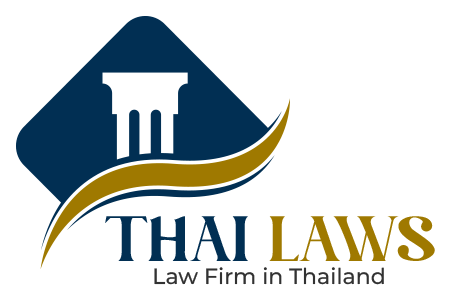Child adoption in Thailand is governed by a comprehensive legal and procedural framework intended to safeguard the welfare of children while ensuring that adoptive parents meet stringent legal, moral, and practical requirements. Both Thai nationals and foreigners—either resident in Thailand or abroad—may adopt a Thai child, but the process varies significantly depending on the nationality and residency status of the adoptive applicants.
Adoptions in Thailand are regulated by the Child Adoption Act B.E. 2522 (1979), the Civil and Commercial Code, and—where international adoptions are involved—the Hague Convention on Protection of Children and Co-operation in Respect of Intercountry Adoption, to which Thailand has been a contracting party since 2004.
This article offers a legally detailed, step-by-step analysis of the Thai adoption process, highlighting key legal requirements, documentation standards, institutional authorities involved, and special procedures applicable to international adoptions.
1. Legal Framework for Adoption in Thailand
1.1 Primary Legislation
-
Child Adoption Act B.E. 2522 (1979) (and its amendments)
-
Civil and Commercial Code (Book V, Family Law) — Sections 1598/19 to 1598/33
-
Ministry of Social Development and Human Security (MSDHS) regulations
-
Hague Convention on Intercountry Adoption (for Hague-contracting countries)
1.2 Regulatory Authorities
-
Department of Children and Youth (DCY) – under MSDHS; central authority for all adoptions
-
Child Adoption Board (CAB) – responsible for approving adoption applications
-
Foreign Embassies – issue immigration and entry permits post-adoption
-
Thai Courts – grant final adoption judgments (for local adoptions)
2. Types of Adoption in Thailand
| Adoption Type | Applicant Status | Approval Authority |
|---|---|---|
| Domestic Adoption | Thai citizens or foreigners with permanent residence | Thai court + CAB |
| Intercountry Adoption (Hague) | Foreign nationals residing outside Thailand | DCY + Child Adoption Board |
| Intercountry Adoption (non-Hague) | Foreigners from non-contracting states | Special approval route |
| Step-parent or Relative Adoption | Requires biological parent’s consent | Thai court |
3. Eligibility of Prospective Adoptive Parents
3.1 General Requirements (for all adoptions)
-
Must be at least 25 years old
-
Must be at least 15 years older than the adopted child
-
Must have no criminal record involving child abuse, trafficking, or moral offenses
-
Must demonstrate:
-
Financial stability
-
Emotional capacity to raise a child
-
Clean mental and physical health
-
3.2 For Foreign Applicants (Intercountry Adoption)
-
Must apply through an authorized adoption agency or Central Authority in their home country
-
Must be eligible to adopt under home country laws
-
Must pass home study evaluation conducted or certified by home country authorities
-
Must obtain approval from their Central Authority before applying in Thailand
Thailand prohibits direct private adoptions for intercountry cases. All foreign adoptions must proceed through government channels.
4. Eligibility of the Child
Eligible children for adoption include:
-
Orphans or abandoned children under the care of the state
-
Children legally surrendered by biological parents
-
Children with consent of a living parent or legal guardian
-
Children previously fostered by the applicant (with CAB approval)
Ineligibility includes:
-
Children without clear legal status
-
Children whose parents have not given consent (unless rights are legally terminated)
Children aged over 15 must give their own consent to be adopted.
5. The Thai Adoption Process (Step-by-Step)
5.1 For Domestic Adoption (Thai citizens or residents)
-
Submit application to DCY or Provincial Office of Social Development
-
Initial screening and interviews
-
Social worker’s home visit and report
-
Review by Child Adoption Board
-
Court petition and hearing
-
Adoption order and registration
Domestic adoptions require court approval and are finalized through a court order.
5.2 For Intercountry Adoption (Foreigners Abroad)
Step 1: Contact Central Authority or Authorized NGO in Home Country
-
Submit request to begin adoption via Hague process
-
Complete home study and obtain Central Authority’s approval
Step 2: Submit Application to Thai DCY via Home Country Authority
-
Required documents include:
-
Home study report
-
Personal identification and background
-
Financial documents
-
Health certifications
-
Marriage certificate (if applicable)
-
Criminal background check
-
Photos and references
-
Step 3: Matching Process
-
DCY proposes a child matching the family profile
-
If accepted, DCY forwards the file to the Child Adoption Board
Step 4: Pre-Adoption Placement (1–6 months)
-
Adoptive parents must:
-
Travel to Thailand
-
Foster the child under supervision of DCY
-
Be subject to in-country evaluation
-
Step 5: Final Approval
-
After satisfactory placement, DCY and CAB issue a Certificate of Approval
-
Thai adoption certificate is issued and forwarded to the home country for visa/immigration processing
6. Legal Effect of Adoption
Once completed and registered, adoption in Thailand has the same legal effect as biological parentage. This includes:
-
Parental powers and duties under Thai law
-
Right to inherit (unless contractually excluded)
-
Citizenship or nationality rights may arise in certain cases
-
Permanent termination of birth parents’ legal relationship (in full adoptions)
7. Citizenship and Immigration After Adoption
For U.S. Citizens
-
Must file an I-800 or I-600 (depending on Hague status)
-
Child receives IR-3 or IR-4 immigrant visa
-
U.S. citizenship is conferred automatically (if child enters on IR-3 and resides with parent in U.S.)
For Other Countries
-
Follow local process for:
-
Immigrant visa
-
Entry permit
-
Post-adoption reporting (often required for 1–2 years)
-
Adopted children are not automatically granted Thai citizenship unless the adoptive parents are Thai nationals.
8. Special Cases
8.1 Step-Parent Adoption
-
Requires:
-
Proof of marriage to biological parent
-
Consent from biological parent (if rights are not terminated)
-
Thai court hearing
-
-
May be used to establish inheritance or custody rights
8.2 Same-Sex Couple Adoption
-
Currently not recognized under Thai law
-
Only heterosexual married couples are eligible for joint adoption
-
Single foreigners may be allowed to adopt depending on home country law, but generally not favored
9. Common Legal and Procedural Pitfalls
-
Incomplete documentation delays processing
-
Lack of home study or Central Authority cooperation
-
Unrecognized marriages (e.g., religious or customary unions)
-
Failure to meet residency or foster period requirements
-
Informal adoptions or direct handovers are illegal and non-recognized
Any form of adoption trafficking is a serious offense under Thai criminal law and international treaty obligations.
Conclusion
Child adoption in Thailand is a legally rigorous but humanitarian process, governed by national laws and international conventions aimed at protecting the best interests of the child. Whether pursued domestically or through intercountry channels, adoption requires extensive screening, documentation, and institutional oversight.
Foreign adoptive parents must coordinate with both Thai authorities and their home country’s adoption infrastructure, particularly under the Hague Convention. The process may be lengthy, but ensures that the child is placed in a stable, lawful, and caring environment.




